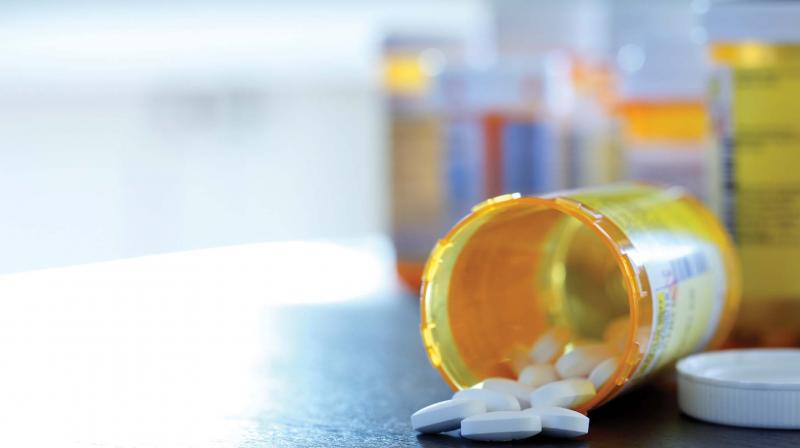The drug stranglehold

June 26 is the International Day Against Drug Abuse and Illicit Trafficking. The data that has come of late points to an alarming situation in Kerala: the number of cases registered under the Narcotic Drugs and Psychotropic Substances Act in the state has been skyrocketing of late.
ALAPPUZHA: The number of cases registered under the Narcotic Drugs and Psychotropic Substances Act (NDPS Act) in the state has been skyrocketing of late, triggering concerns in many quarters over the burgeoning use of narcotics among youngsters. Despite government's 'eased-out' liquor policy and continuing counter mechanisms including organised awareness campaigns, NDPS cases, as per the data available with State Crime Records Bureau (SCRB), have touched 3,645 in the first four months this year.
The trend started in 2013; till then the number of cases was below thousand. It began climbing to the alarming 'four figures' from 974 in 2013. Last year, the number of cases registered was 8700.
The trend continue to be unabated at a time when non-government organisations and media have, over the years, highlighted various aspects of the drug problem by looking at types of drugs being abused and the vulnerable groups that fall prey to the menace.
Yet, the flow of stuff to the state from outside continues unhindered, making things tough for the enforcement agencies. Social scientists and commentators say changing lifestyle among youngsters, bad parenting, lack of strong awareness campaigns and the growing population of migrant labourershave had a multiplier effect on the grim situation. There have been several instances of migrant workers from states such as Bihar and West Bengal being used as carriers of drug by the mafia. Law enforcement agencies also site cities such as Bengaluru as the source of drug. One of the latest instance was when Cherthala police seized new-gen drug Methylenedioxymethamphetamine (MDMA) from a youth from Aroor the other day. It was brought from Bengaluru.
That the governments at the Centre and the state have failed to put in a proper policy framework for storage and disposal of seized drugs such as hashish and ganja. The Supreme Court had last year observed that lack of storage and disposal of seized stuff could make a re-entry to the market through loopholes as people within Narcotic Control Bureau or the police are re-routing them to make a quick buck.
It may be recalled then excise commissioner Rishiraj Singh had in 2016 the compared the drug consumption of Kerala to Panjab, which has been hit by the spread of drug abuse among its youngsters and is a known drug trafficking destination. Mr Singh had said Kerala could find itself in the same league as Punjab in five years in with respect to drug trafficking and abuse. Vindicating his words, the Crime in India-2016 report of the National Crime Records Bureau, which was released in late 2017, noted that Kerala's incidence rate for NDPS cases (cases per lakh people) was 16.6 per cent, second only to Punjab's 20.2 per cent.
Excise commissioner S. Aananthakrishnan told DC that the main strategy of the excise department was to target demand and supply chains through multi-pronged approaches. "The enforcement is on the full swing," he said. "As a result, we had a recent haul of hashish worth Rs 1 crore from the capital city. The state level anti-drug awareness campaigns have already been underway. District level de-addiction centres have been set up to deal with vulnerable groups." He said the enforcement agencies, working in tandem with the excise department, have taken stringent step to stop the flow of stuff from other states.
In 2010 in the wake of Alappuzha district became a hot spot of narcotic pedlars, Vimukti, the district administration's mission for the first time in the state to make it tobacco and drugs-free district, had managed to provide direct counselling to at least 785 students aged below 15 for four years.
The project, which was later taken over by excise department itself, was able to make a complete behavioural change on 182 students through counselling.
Dr. N.S. Nisha, head of the department, community medicine, Government Medical College, Idukki, who was the coordinator of Vimukthi project, said three things such as early detection, direct counselling and follow up must be done to bring change on the ground.
"Most of the youngsters start consuming drug as tendency of puberty," she explained. "They students fell into addiction due to peer group pressure and free access of stuff. Society must take character building of the young generation seriously through better friendship, good parenting and effective social care. These values needs to be inculcated in society and cultivated through programmes like Vimukthi. This is the effective mechanism to counter drug consumption."
Dr Nisha said enforcement agencies are sometimes seen unable to break local level supply chains. "The direct counselling to the addicted kids and youths can help bust such rural level supply chains. The government must give priority to formulate hard-hitting counter mechanisms acknowledging the extent of the problem," she said.

